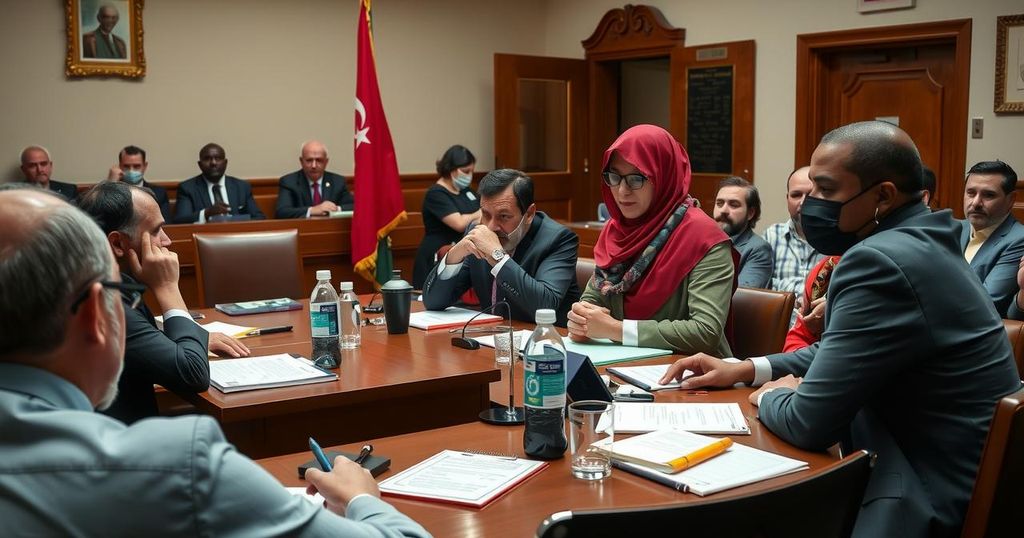Four activists, including Said Ait Mahdi, are facing court charges related to defamation linked to their criticism of the Moroccan government’s earthquake response. The 2023 earthquake claimed nearly 3,000 lives and destroyed numerous homes, prompting calls for urgent reconstruction. While Ait Mahdi is in custody, the other activists await trial free.
On Monday, four activists who have been vocal advocates for the victims of the 2023 earthquake in Morocco faced judicial proceedings over defamation charges. Among them, Said Ait Mahdi, the head of the Al Haouz Earthquake Victims Coordination, is presently in custody, accused of defaming public officials, insulting them, and disseminating false information through social media. The remaining three activists are free while awaiting trial and share similar allegations of insulting government officials.
The earthquake, which occurred in September 2023, resulted in the tragic loss of nearly 3,000 lives and caused destruction to tens of thousands of residences in the High Atlas mountains. Ait Mahdi’s organization has consistently called for expedited reconstruction initiatives to assist the families affected by this disaster. In response to these needs, Moroccan authorities have issued more than 57,000 reconstruction permits and committed approximately $740 million to rebuild the devastated homes.
In September 2023, Morocco experienced a devastating earthquake that resulted in significant loss of life and property. The aftermath of this disaster revealed gaps in the government’s disaster response, prompting public criticism. Activists, particularly those affiliated with Said Ait Mahdi’s organization, have been making appeals for urgent rebuilding efforts and advocating for victims’ rights. The legal actions against these activists have raised concerns regarding freedom of expression and governmental accountability in the wake of a national tragedy.
The ongoing court proceedings against activists in Morocco highlight the contentious intersection of governmental accountability and freedom of speech, particularly following the catastrophic earthquake in 2023. With substantial funds allocated for rebuilding efforts, it remains critical to examine the efficacy of these initiatives and the role of activism in ensuring that the voices of the affected communities are heard and addressed by the authorities.
Original Source: newscentral.africa






